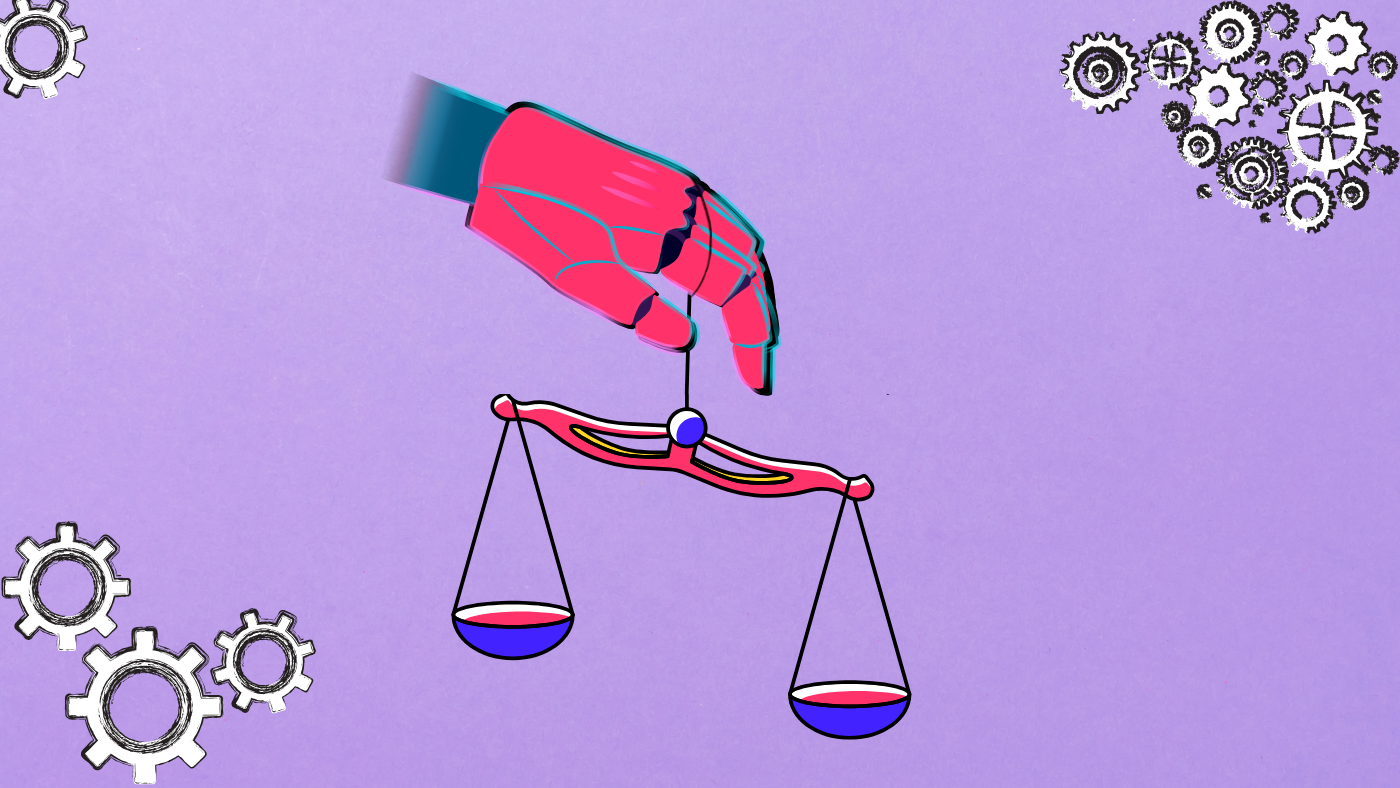AI and Ethics: Risks, Responsibilities, and Regulations
5 minutes
February 8, 2025

Artificial Intelligence is transforming industries and daily life, offering unprecedented opportunities for innovation and efficiency. However, this rapid advancement brings significant ethical challenges that demand our attention. Take, for example, a recent case in Australian courts where a lawyer used AI, specifically ChatGPT, to assist in preparing legal case summaries. This seemingly harmless practice led to the submission of multiple fictitious case citations, resulting in court adjournments and the involvement of legal oversight bodies. The repercussions? There is a growing sense of unease about the unchecked use of AI in critical fields like law.
This incident shines a light on one of the key ethical questions surrounding AI: How do we ensure that this powerful technology is used responsibly without undermining the trust and integrity of systems that govern our lives?
Understanding these challenges and the frameworks designed to address them is crucial for fostering trust, ensuring accountability, and achieving regulatory compliance in AI development and deployment.
The Ethical Challenges in AI
The ethical dilemmas surrounding AI are multifaceted, ranging from bias to privacy, transparency, and accountability. Some of the most pressing challenges include:
- Bias and Fairness: AI systems tend to perpetuate and even amplify existing biases present in their training data. This can lead to discriminatory outcomes in hiring, lending, and law enforcement. For example, biased algorithms may unfairly disadvantage certain demographic groups or sow doubts over fairness and justice in AI applications.
- Privacy Issues: Using large amounts of personal data to train AI models raises significant privacy issues. The ethical issues revolve around collecting, using, and safeguarding this data. Privacy infringement leads to a breakdown in user trust and may attract legal action against organizations.
- Transparency and Accountability: Most AI algorithms are "black boxes," meaning their decision-making processes are not easily understood. This lack of transparency erodes user trust and complicates accountability when AI systems make wrong or harmful decisions.
- Job Displacement: AI technologies' automation of jobs threatens to displace jobs in many industries, leading to economic inequality. Ethical considerations must address how to support workers during this transition and mitigate negative societal impacts.
- Security and Misuse: The ability of AI systems to be used for nefarious ends—such as cyberattacks or surveillance—introduces a future stream of ethical complexities. The security of such systems needs to be taken seriously to prevent harm.
Why AI Ethics Matters: Trust, Accountability, and Regulatory Compliance
Establishing robust AI ethics is essential for several reasons.
- Trust: Ethical AI practices provide public trust, fostering confidence that individuals are secure in the technologies they operate on daily.
- Accountability: Clear ethical guidelines hold developers and organizations responsible for the outcomes of their AI systems, promoting responsible innovation.
- Regulatory Compliance: As governments worldwide implement AI regulations, adhering to ethical standards ensures compliance and mitigates legal risks.
UNESCO's Recommendation on the Ethics of Artificial Intelligence
In a world increasingly shaped by artificial intelligence (AI), UNESCO has taken a significant step forward by establishing a global standard-setting instrument known as the UNESCO Recommendation on the Ethics of Artificial Intelligence. Adopted in November 2021, this recommendation serves as a comprehensive framework applicable to all 194 member states of UNESCO, addressing critical ethical issues that arise from the development and deployment of AI technologies.
Core Principles and Values
At the heart of the UNESCO Recommendation is a commitment to protecting human rights and dignity. The framework emphasizes several core values:
- Human Rights Protection: AI systems must respect, protect, and promote fundamental human rights throughout their lifecycle. This includes ensuring that AI does not infringe upon individuals' rights to privacy, freedom of expression, and non-discrimination.
- Transparency and Accountability: The recommendation is transparency of AI systems, which ensures that stakeholders understand how decisions are made. This provision is critical for accountability, especially if the decisions of AI systems affect people's lives.
- Inclusivity and Diversity: Promoting diversity and inclusion is essential in the development of AI. The recommendation stresses the need for diverse opinions in designing AI systems to resolve these biases and bring equitable results.
- Sustainability: The framework demands that AI technologies be aligned with the UNSDGs so that their use will add to social, economic, and environmental well-being.
Policy Action Areas
UNESCO has extensive policy action areas that policymakers use to translate these core principles into workable strategies. These areas include:
- Data Governance: General guidelines for data collection, usage, and sharing to protect privacy while offering integrity.
- Education and Research: Education about AI ethics should be given to future generations of engineers for whom technology is under development so that they understand what ethical considerations they need to be mindful of in their designs.
- Health and Social Well-being: AI in health care shall help patients without damaging their rights and data confidentiality.
- Environmental Protection: Develop AI that fosters the creation of environment-friendly technologies for handling climate change problems.
Global Consensus on Ethical AI
The adoption of the recommendation by this decision represents a global conclusion on the need to include ethical considerations in AI governance. It calls on governments, organizations, and stakeholders to place human welfare at the forefront of technological advancement. In following these guidelines, an organization can, therefore, develop an environment where every aspect of AI development, whether design or deployment, is anchored in ethical practice.
Challenges Ahead
Despite the strong framework established by UNESCO, several challenges remain in implementing these ethical guidelines:
- Cultural Variability: Different cultural contexts may interpret ethical principles differently, complicating uniform implementation across diverse regions.
- Regulatory Gaps: There is often a disparity between technological advancements in AI and regulatory bodies' efforts. Such inequalities can hinder appropriate ethical standards.
- Need for International Cooperation: Effective AI governance requires collaboration among nations with different standards while respecting local contexts.
Other Regulations Addressing AI Ethics
Different global regulations come up as ethical implications are laid on the path of responsible artificial intelligence development.
The European Union's AI Act is a pioneering legal framework for high-risk AI applications. It focuses on transparency and accountability, strict compliance requirements, and violation penalties. The rules and obligations collectively aim to establish a comprehensive framework for the responsible and ethical development, deployment, and use of AI technologies.
The IEEE Ethically Aligned Design guidelines encourage embedding ethics in the engineering process from the design stage. The United Nations has also focused on adhering to international human rights law in AI. It emphasizes individual interests while also addressing critical societal issues related to AI, such as non-discrimination, fairness, and privacy.
Japan's Human-Centered Principles aim to create an "AI-ready society" that respects human dignity and emphasizes diverse perspectives in AI development. In the United States, California's proposed Bill SB1047 introduces penalties for algorithmic transparency and fairness violations, reflecting a growing awareness of the need for ethical oversight.
Together, such initiatives reflect a global commitment to integrating ethics into AI governance as a means of fostering trust while ensuring human rights and dignity.
Recent Developments in AI Ethics
The discourse on AI ethics is rapidly changing. For example, cognitive scientist Gary Marcus advocates for regulatory oversight of AI, stressing that a specific agency needs to be in place to oversee and approve AI technologies before their mass deployment.
Experts such as Reid Hoffman also discuss the intricacies of AI's impact on society, emphasizing the need for careful progress and shared interaction with the technology. These conversations emphasize the need for ethics and regulatory structures to be developed to address the issues that AI presents.
Conclusion
This requires that the further development of AI be addressed, as well as its ethical challenges. By embracing global standards like UNESCO's recommendation and fostering open dialogues, we can ensure that AI development aligns with human values, promotes fairness, and upholds individual rights. This approach will mitigate risks and harness AI's potential for the greater good.
SHARE THIS
Discover More Articles
Explore a curated collection of in-depth articles covering the latest advancements, insights, and trends in AI, MLOps, governance, and more. Stay informed with expert analyses, thought leadership, and actionable knowledge to drive innovation in your field.

Is Explainability critical for your AI solutions?
Schedule a demo with our team to understand how AryaXAI can make your mission-critical 'AI' acceptable and aligned with all your stakeholders.



















.png)

.png)
%20AryaXAI%20blog.png)


